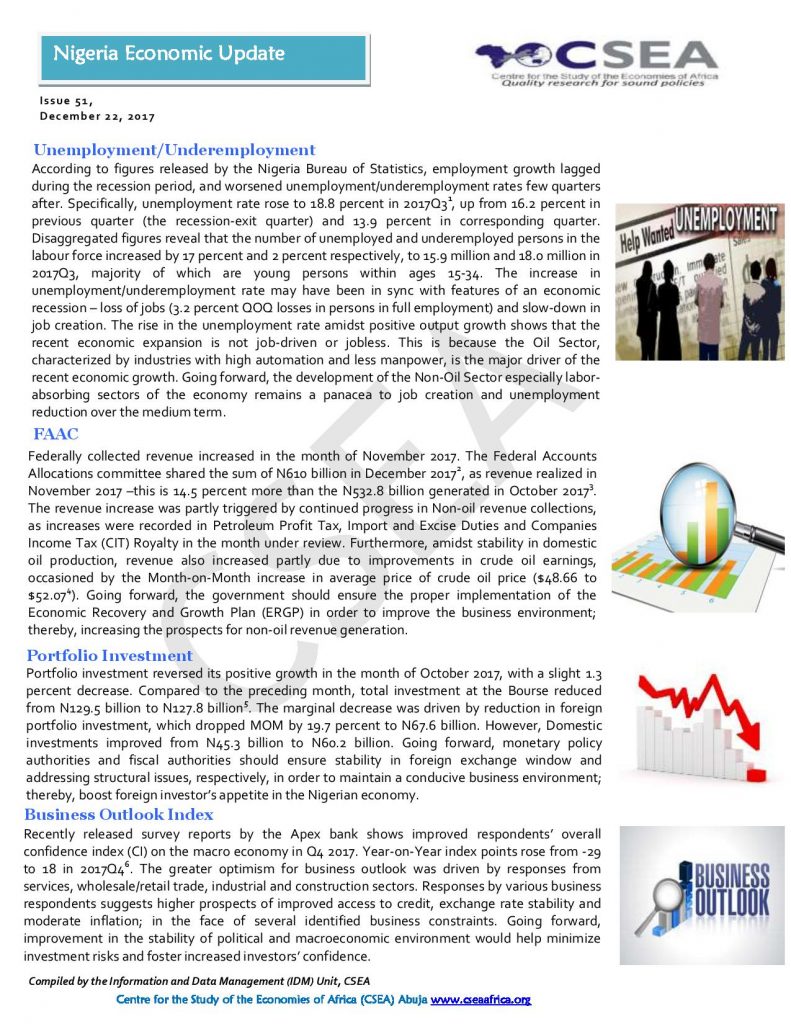Macroeconomic Report & Economic Updates

January 15, 2018
Nigeria Economic Update (Issue 51)
According to figures released by the Nigeria Bureau of Statistics, employment growth lagged during the recession period, and worsened unemployment/underemployment rates few quarters after. Specifically, unemployment rate rose to 18.8 percent in 2017Q31, up from 16.2 percent in previous quarter (the recession-exit quarter) and 13.9 percent in corresponding quarter. Disaggregated figures reveal that the number of unemployed and underemployed persons in the labour force increased by 17 percent and 2 percent respectively, to 15.9 million and 18.0 million in 2017Q3, majority of which are young persons within ages 15-34.
Related
Capital Importation And Budgetary Allocation
Capital Importation: Foreign investment into the agricultural sector was relatively flat between 2007 and 2012 but gained unusual momentum in September 2015. The spike in 2015 is likely driven by the
Consequences Of School Resources For Educational Achievement
This paper examines the
determinants of educational achievement in a developing country context,
Burkina Faso. We deviate from the extant literature by constructing an
aggregate index of school quality from the observable school resources. Also, we
account for school choice constraints, faced by children especially in rural
areas, as it relates to the geographical inequalities in the distribution of
quality schools. These treatments provide an unbiased estimates of the
relevance of school resources for academic performance. The empirical approach
is based on a two-stage procedure that accounts for supply constraints in
school choice.
